Can you learn to sing with a singing app? I wanted to find out if this is possible - and if so: what are great singing apps (or: vocal training apps) for both iOS and Android?
After reading this article, you will find out which singing apps are easy to use, warm up your voice properly and - ideally - give you some guidance on your vocal technique.
The difference between singing apps and online singing courses
First, to define terms, I make a distinction between singing apps and online singing courses. What's the difference?
Singing apps
Online singing courses
What defines the best singing apps?
- Any vocal training app has to warm up your voice properly. For that, it needs a good build-up. In other words, it has to start small, with consonants or trills and with short range exercises. And slowly build up from there to closed and open vowels and wider range.
- It would also be nice if the singing app had good vocal technique guidance.
- And finally, it should be easy to use.
(Disclaimer: some of the apps may have affiliate links attached to them. HOWEVER: My order of action is: first reviewing the app and ranking it, then reach out to the creator for comments/feedback. Only after reviewing and ranking the app do I ask for an affiliate link, if they give one. I don't recommend tools I don't believe are good.)
Word of warning about learning to sing with apps
Can these singing apps function as your online singing teacher? In other words, can they be complete learn-to-sing apps? How do these apps hold up compared to other online singing tools, such as an online singing course or online singing lessons?
Short answer: sorry but in the grand scheme of singing practice these vocal training apps are not enough. Crucially, vocal warm-up is what you should do before each session, like an athlete. It pains me to say that I didn't find an app that's good enough in terms of vocal warm-up. Some apps are good at build-up. For example, starting with short range exercises, moving to wider range exercises. However, I didn't find a singing app that did the warm-up well in all aspects.
If you need vocal guidance, no app I saw can stand on itself and guide you. They won't give you a plan on how to improve.
BUT - IF YOU KNOW WHAT YOU ARE DOING, use these singing apps for:
- Inspiration for exercise repertoire.
- Some also have good build-up.
- Some track your progress, some your pitch.
- Some give you good tips and even videos.
These apps are a selection of the ones I reviewed
After going over a bunch of apps and being mostly disappointed, I have decided to distill the list to give you the very best out there, and review those in detail. The others that I found not as good I will mention, and briefly explain why they are less in my opinion. If you know of a good app - please leave a comment, I'll check it out.
My review of all singing apps
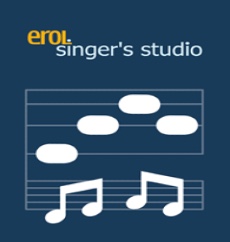
Erol singer's studio
- By: Erol Studios.
- Free+upgrade options
- 4.8 stars - ~2K ratings.
- Upgrade: €1.99 per week; 7.49 per month or 54.99 per year. Will grant you more posture tutorials and more exercises.
High credit is due to Erol's singing studio
Before diving into the review, you should know that Erol is one of the only singing apps that replied to my reaching out and questions. But they did more than reply. The developer communicated with me directly, and immediately prioritized making changes according to the feedback in my original review.
This is an edited review, based on the improved version. Biggest change has to do with the actual warm-up build-up, which you know is very important to me.
Range finder
The app helps you find your vocal range: shows keyboard and the different voice types, you can also record to detect your range. This is the first app I found which helps you find your range! Kudos.
Here's the developer's own words explaining the range detector:
"When the app says “Say a steady ‘ahhh’ in your normal voice”, make sure you use your normal speaking voice. This will be used as your comfortable starting note for most exercises... After that, you can set your highest and lowest notes as usual (without pushing/straining your voice for either)."
Improvement Erol has made:
Now Erol's app starts the exercises from the comfortable note in your range (determined by your natural speaking voice). This is ideal.
Posture
There is an animated demonstration - that’s super awesome. They even show the internal anatomy of the lungs and ribs!
First exercise is a long S, exhale exercise. They show with a man figure how to do it.
I don’t entirely agree with the technical wording there - but that’s ok. This is a support issue and not all teachers agree on that. Then they count the seconds for you! Very handy, engaging and fun to do.
Downsides:
- There is no audio. Only text. I, personally, can't read fast enough to keep up. However, you can pause any time.
- The principles of the posture are correct, but to achieve them is not as simple as instructing them. So this app will not really teach you how to achieve the right posture, only what it is.
- There are 4 lessons in this chapter, and only one for free.
Upside, and a big one:
- This is the only app teaching posture at all. Plus, it’s really nice that they don’t put all of it behind a pay wall, instead they make you work for it.
Cool features Erol singer's studio
You can also mark exercises as favorites. Exercises can be edited, you can change the syllables you sing, the notes, even the notes themselves. The editing feature is in the paid version, which makes sense, you pay to custum the exercises to yourself.
Another interesting feature is "Peeking". It is described as "taking the training wheels off, but putting them back on temporarily just when you need them". Why? According to Erol's team, pitch feedback is great and helps people build muscle memory for the different notes (which is essential for beginners and even professional artists who sing live and as such can't hear their own voices over their bands).
However, research shows that as people get good at their pitch, it's better to start letting go of pitch feedback. People who continue to watch their pitch line *after* they've already built muscle memory for a pattern/exercise/song can tend to focus a bit too much on their pitch and neglect other aspects of their voice.
To prevent this and have the users smoothly transition into singing without visual pitch feedback, the app offers 4 levels of difficulty for each exercise.
Warm-up
Here's where I have seen good changes.
First exercise is long S, then speaking on one note. Good start, we don't jump straight into open vowels and wide ranges.
Instructions&demonstrations:
The exercises have written instructions, and are demonstrated by a female or a male voice. Then you see the notes on the screen and the tracking of your voice while you sing. Sometimes the instructions go by too fast for me to read.
Then you have 2 small groups of exercises you can play and sing along, and the build-up is good, simple exercises, most of which only 5-note range, perfect. Some involve siren noises which I also love.
The next groups of exercises are a part of an affordable subscription.
Some tips along the way as you warm up are good.
Vocal Exercises Erol singer's studio
Another upgrade - guiding your progress but not stressing
Erol use to have a quite accurate measurement of the pitch, and required a score of 3 stars in order to move on to the next level. Those requirements are now somewhat elevated, in such a way that will help you not over-sing, or go to a high level before you are ready AND That you can follow your pitch, but not be pressured to use tension to correct it.
Being able to play your recording back is helpful and I learned from it. It is not obvious right away how to do this, though.
Downsides:
- You can skip to the note you want, but the exercise will not continue playing after that, but will go back to the start.
- They instruct you to do something, not teach you how. that's common to many apps I've seen. That could be due to the compactness of the app concept. It should be short and sweet, not elaborated. I can understand that, but that makes it a supplementary tool for learning, not a self-sufficient one.
Eight different levels of exercises:
You will not get bored soon with Erol, since they offer eight levels of vocal exercises, many of them include breath exercises, which is always good to start with. In every level there are two or three groups of exercises. Nice.
Musical theory/Ear training:
Something that helps singers a lot, especially if they don't have a professional background, is to know the intervals, arpeggios and scales. This app shows it visually in a vocal exercise. So a very practical way to learn some musical theory.
Pros Erol singer's studio
- Only app which teaches posture!
- Pitch detector is useful for pitch awareness
Cons Erol singer's studio
Aesthetics
Cool features
Easy to use
Exercise build-up
Technical guidance
Verdict Erol singer's studio
Pretty good - ALMOST the real deal!
You get more guidance, vocal safety and fun than anywhere else
First thing to learn about singing is warming up the voice!
Followed by multiple tutorials for all vocal skills
Vocalizer
- By: Hector Ricardo
- Free
- 4.0 stars ~1K ratings
Range detector:
Another singing app which records you to determine your range - yay! There is an option to manually select a voice type, play the range notes on a keyboard or record. I recommend to record!
Exercises
This app is the is one of the only apps with a good exercise build-up. They start with short range and slowly expand the range and difficulty. You can have a whole routine in a major scale, then they have all of those exercises in a minor scale.
Then there are some more chromatic exercises and some ear training exercises (which can also be used to warm up).
All in all - wonderful variety of different exercises and sequences.
If you use those starting on consonants and gradually moving to closed and open vowels - this is the safest sequence suggestion on a vocal app so far.
While doing an exercise you can easily forward and rewind (to skip to anywhere in the range), change the speed, and choose between: ascending then descending; descending then ascending; only ascending; only descending.
Unique - pentatonic scales
Did you know that practically all riffs that you hear in Pop, Rock and Jazz singing style are built on the pentatonic scale? That means a series of 5 notes only. It can have a major key and a minor key version.
So if you want to (at least look like you) improv like Mariah, you need control over this 5 note scale. Yet, no app but Vocalizer gives you those scale as a vocal exercise to practice. Interesting...why not?
Use vocalizer to learn how to riff:
Go to one of the pentatonic scales and set the tempo relatively low. You start really slowly with this. If you haven't warmed up yet, you can use a vocal consonant at first (V, Z, liptrill etc.) and then the u or i vowel. When you get control over the scale in the slow speed, turn the speed/tempo up a bit.
Do this bit by bit, otherwise your muscles will not learn this. Stay on the same speed for a few days if necessary, or as long as it takes. Do not move up the speed before you have the current one in your system.
Eventually you can move on to e, o and a vowels, you can also use syllables such as "Hey" "Ho" or "Ya". And there you go, you will have mastered the skills you need for riffs and runs.
Down sides:
- When you play an exercise, the first note you get from the app is distorted and unpleasant on the ears. This is new, when I first reviewed the app that didn't happen.
- Wireless headphones don't work in this app.
- There is no indication on what consonant/vowel one should sing the exercise on. Not everyone knows how best to use consonants/vowels in the exercise build up. Even a guideline saying that you better start with a trill or a consonant would be nice, but indication would make this app super useful.
- Technical guidance is necessary if one wants to go about vocalising safely. There is no guidance on the exercises what so ever.
- There's no one to talk to on the other end. No customer support or help options.
Pros
Cons
- No indication which sound to use on exercise
Aesthetics
Cool features
Easy to use
Exercise build-up
Technical guidance
Verdict Vocalizer
Pretty good!
The upside of the exercise variety and build up compensate for all the problems!
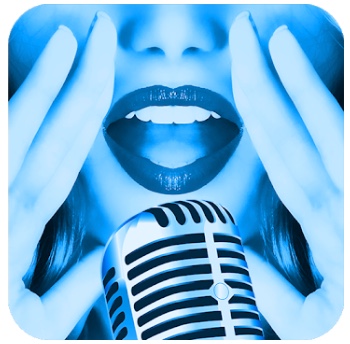
Swiftscales
- By: VELDEN LLC.
- 4.1 stars - 1.4K ratings
- Free+Pro upgrade option for € 3.99 one-time
The general instruction is to sing as low/high as comfortable. A good piece of advice! Downside: monotonous talking, not personalised.
Dashboard
This part of the app is easily overlooked. I skipped it because I didn’t think there would be practice material there. On second visit I realized you have an entire section of singing basics in it:
- General inspiration about the voice
- Breathing exercises for stamina and support (really good BTW)
- Vocal Health do’s and don’ts
- Pitch exercises - not a fan. They encourage you to hold the note for a long time, and consciously correct the pitch. Most times holding a note actively might activate the wrong muscles and create more tension and less pitch control.
- Explanation about tone of voice
- Explanation about the scales
- Explanation about Range (better put: vocal registration, which not all teachers agree upon. Personally I don't share their view on registration).
Routines
YOU NEED A HEADSET TO HEAR THE MUSIC
They demonstrate what to sing before you are accepted to sing, which is good. They also track how many times you practiced, also good. You can control when the exercise goes higher and lower, very good!
Some consonants are pronounced with a glottal stop in the beginning of it, which might be aggressive on the vocal cords..
For other levels you have to upgrade. You can create a custom routine for free, but to use it you will need to upgrade.
Scales
A handy feature. You can choose the exercise, the speed and the key and it will start it for you. Then you also choose the syllable/consonant on which you sing the exercise. So that helps you custom-make your own routine, which is also possible through the app.
This is great if you have a routine from your teacher or you made one up for yourself, you can compose it in the app and have it on hand.
Create scales
Here you make up your own exercises. Simple to use, and good fun! Once you compose a scale it will be added to the scale section.
I’m missing the option to write long notes. Composing is free, but you cannot use the scale you have created unless you upgrade.
*I think it’s worth it to upgrade in order to use the self created scales and routines.
Sharing center
I think it’s super cool. As a teacher I can share routines I created with my students. You can choose the scales and routines or create them on the spot, then share them on via email (apple mail in my case, which I don’t use), FB or Twitter. On android they give a ton of other options!
Pros
- Relatively good exercise build up
- Practice tracking
- Composing and sharing of exercises
- Worth the upgrade
Cons
- Compelled vocal range labelling
- Limited sharing options on ios
Aesthetics
Cool features
Easy to use
Exercise build up
Technical guidance
Verdict Swiftscales
Pretty good!
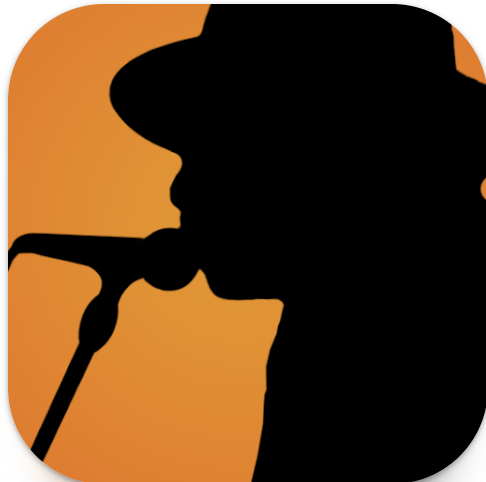
Vocal Ease 2
- By: Arnold McCuller
- $0.99 on iOs; $1.99 on Android
- 4.4 stars - 470 ratings.
They declare this voice training app is for use in the car or on the go. It shouldn’t replace your teacher.
Some technical advice is given right off the bat: palate up, larynx down, feeling of a yawn or a sneeze. I don’t agree with all of it, but OK.
Here is the best part
The warm up exercises are in a form of audio guide, done obviously by the voice teacher himself - I like that! This guy, Arnold, gives a nice, cool atmosphere and made me smile quite a few times. This approach of him recording homey, personalized guides is wonderful.
This app is actually quite handy. You can press play and roll with it, hands free, it will autoplay and you will feel like he is talking directly to you with his charming personality. So this indeed delivers on the car-friendly promise. That interface and the way the app works - I love. I can’t recommend the actual routines, but the usability gives this app a great potential if those can be adjusted, or if you happen to like the routines.
Warm-ups
The first exercise is supposed to be a simple hum. It is a hum, alright, but not simple. 1.5 octave range, and makes you linger on the highest, too! If that’s the first exercise of my day without warming up - I’m gonna hurt my throat.
As I am going through the exercises they are almost all advanced and wide ranged. How is that supposed to get me ready for a performance while I am driving my car (that I don’t have)?
No alternatives to the lip trills, some people can’t do them. No explanation on what a connected sound is or how to achieve it.
If you have the tendency to strain while singing, this app will not help you at all, it will actually cause harm. Because you will reinforce the same wide range challenging exercise that you don’t know how to do.
Exercises
Technical guidance: there's a mix of good and not so good here.
What's good:
How to do the lip trills is explained here in a very helpful way, actually. That should be in the very first time he asks to do lip trills.
Some of the exercises actually feel good, like those starting with NG or G sounds. They could be really good further down the line.
What's not so good:
At some point Arnold says: remember to breathe. That’s a bit general, in my opinion. Not everyone breathes efficiently. Some use extra tension around the airway, some will hyperventilate. Especially beginners, but not only.
Passaggio exercise does not explain how it helps the passaggio, and is actually yet another version of the same one we repeated many times.
Can you use this app to warm up?
If you would like to use this app to warm up, but agree with me that the first routines are too hard, here is the order I would recommend:
- Number 4. On 2nd Warm up series
- Number 1. On 2nd Warm up series
- Number 8. On exercises
- Number 9. On exercises.
- Number 7. On exercises.
- Number 3. On 1st Warm up series
After that - feel free to play around with any of the routines
Intervals
There is no explanation of the basics of the musical theory, assumes we know what a diatonic scale is and what major or minor thirds etc.
This is a good hearing training, but NOT if you got range issues. You can learn a bit about theory through singing, so that’s a nice way to do that.
Guests
That’s very big of Arnold to give a platform to other teachers on his own singing app!
Unfortunately, I don’t know that they contribute anything that will change my general opinion about the exercise build-up. Every guest brings some cool ideas, the recurring themes that I am not on board with are: lack of graduality (some of the guests are better with their first exercises, though) and lack of explanation of technique/musical theory.
*Bug alert: There is currently a bug in the app, under one of the guests’ tutorials. There are video options, but when clicked they cause a black screen from which you cannot retreat unless you restart your phone (BTW, I’m using an iphone).
Cool feature
Pitch Pipe!
Cute and useful feature, especially if you are out and about and in desperate need of a certain tone.
Pros
Cons
Aesthetics
Cool Features
Easy to use
Exercise build-up
Technical guidance
Verdict Vocal Ease 2
Maybe Kinda (with a great potential to 4 or 4.5!)
If you already know technique you may know how to use this app.
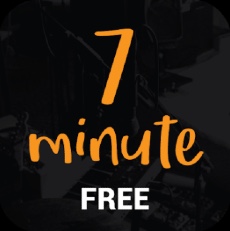
7 minute Vocal warmup
- By: Indra Aziz
- $0.99 on ios; free download on android (recovery and cool down are pro version at €1.09)
- 4.7 stars - ~3K ratings.
Menu: breathing, warm up, recovery, cool down, about.
There is a lot of reading required in this singing app. Text is a bit small. However the instructions are good.
In the about (last section in the menu) there is a guide on using the exercises only within the comfortable range of one’s voice. Also advice as to when one should consult a physician. That’s important and good to say. But I would mention that in the beginning, and not in the last section.
You need a headset to get the audio in this app, which is not indicated.
Breathing
No explanation what the exercises do or why. Might be tricky because one could end up inhaling too much, hyperventilating and/or accumulating sub-glottal pressure. If you can manage those exercises without feeling pressure on the vocal cords, or fainting - it’s good for building up stamina and breath control.
You have to go through the exercises start to finish, no pausing, rewinding or forwarding. That's not handy.
Warm-ups
In general the build up here is ok. Could be more gradual, but I can live with it 🙂
There are 3 sections: Easy, Regular and Extra.
In the first exercise the chord is given together with the singing, not in advance, that might be difficult to follow. After that the chord is given in advance.
Here, also, there is no rewinding, forwarding or pausing the exercise.
There is no autoplay so you have to actively stop one exercise and click another.
Recovery
Vocal fry and humming. I believe these are good, especially the humming. When you have a hoarse voice, however, your vocal cords might not close well, nor fry.
Cool down
Basically vocalizing going down the melody. The exercises are nice to do, feel good and relaxing.
Pros
Cons
Aesthetics
Cool Features
Easy to use
Exercise build-up
Technical guidance
Verdict 7 minute Vocal warmup
Maybe kinda, almost pretty good
Some really good ideas in this app, but the technical guidance is not thorough enough.
No longer a little mouse...
Maybe you feel it's time to stop shushing your own voice. My weekly 'Belting Mouse' mail shows you how to. It gets you on track with stories and insights from my life as a singer and that of my students.
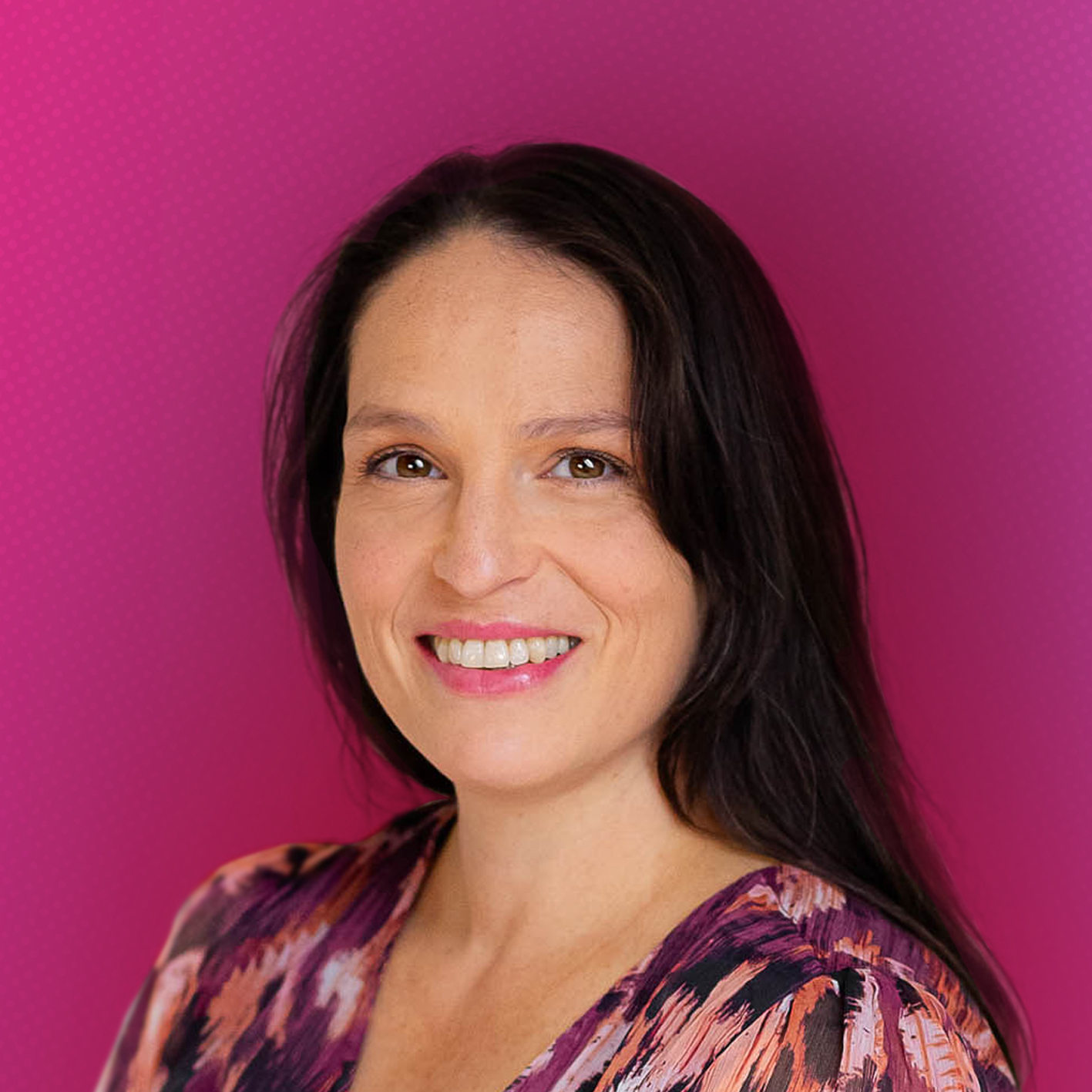
For 'little mice' who are tired of squeaking and want to start belting...

Warm me up!
- By: Warm me up
- $5.99
- 4.2 stars - ~90 ratings.
Again, asking for my sex and voice type, that will not determine my range, or range potential...
From the first look this singing app is promising. It declares that it builds up the warm-ups properly: short ranges and consonants first. They also guide us as to what a good warm up is and how we can and should custom it for ourselves.
You can select the length of your warm up. Nice feature.
Pre-made sequences
The sequences that they put together for us were not useful to me. Even though you indicate what voice type you are, the different exercises are of different voice types and ranges. When I contacted them about it, they claimed it is purposefully this way, so that one can expand the range and experiment with singing lower and higher. I get that, but in practice that was confusing.
Browse exercises
In Browse Exercises you can just choose your exercise and they are all the range you chose, so I prefer that. The first few exercises are great to start with!
Auto plays to the next exercise - good.
Some of those in the getting started section are a bit too fast, not everyone’s voice is agile. But mostly the humming and trills are short ranged and very helpful.
They give short text instructions on each exercise which is good. However, sometimes the instructions involve something that should be taught, and it is assumed that people will know how to do it. For example: well shaped vowels; maintain your support.
Getting warmer
In getting warmer the exercises are already quite advanced.
The scales go up and back down, which is good. But they don’t warm you up lower than the middle.
The exercises become more and more creative and funny, definitely a plus. That creates a positive experience which one will opt to repeat. I should learn from that and use more funny exercises!
A good thing - the Pianist!
Piano accompaniment is a joy, this is for sure a professional pianist and the chords are not simple, they sound like a song accompaniment, which makes it inspiring and motivating.
You can create your own warm up, that’s good! I can copy the routines they created if I like those, and make sure they are in my range.
I think one of the caveats here is that the creators of this app are all professional singers. That makes it fun and fancy, but all of those people can already sing. And that’s the standard that is taken here into account.
I think it would be really cool if they wrote down the exercises in music notes. They already have a staff there on the screen - why not?
Pros
Cons
Aesthetics
Easy to use
Exercise build-up
Technical guidance
Verdict Warm me up!
Pretty good!
Fun and safe, as long as you don't overdo it.
I teach singing online
Let me find your bright spot.
Yousician
- Yousician Ltd.
- 4.6 sta • 64.9K Ratings
- Free, offers In-App Purchases
Some features of singing app Yousician have changed and been added since first I reviewed it - so I edited some of the content here:
The app is now free to download, but limits your using time per day, as well as some of the chapters.
Upgrade is not cheap, between €14.99 and €29.99 per month. You can get a 7 day free trial, so that's fair I guess.
The app can also teach you instruments like guitar, piano, bass and ukulele. Here I focus on singing.
Here's a good thing: It has actual voice teachers giving the tutorials. And they are sweet and personal and good singers! They take you by the hand: how to do the exercises and start from a basic level. They give you enough time to prepare and do them.
Here's a not-so-good thing:
The app starts you off with pitch control exercises. Without warming up it's difficult, if not dangerous to do. It took me the entire allowed practice time in the app to discover there are actually warm up sections in the app. So the warm up is not obviously accessible.
The warm up is mainly body warm up - which is great - but there is no actual proper vocal warm up. Only exercises scattered here and there, no sequence, therefore, no exercise build up.
Exercises in the basic chapter: It's all about singing in tune.
The pitch detector doesn’t tell you if you have hit the note while you are singing it - only after. By then you can’t even correct it. - not good.
Can’t forward or rewind in an exercise- not good.
You can mark your favorite exercises - good.
Background music is fun!
Pros
Cons
Aesthetics
Cool features
Easy to use
Exercise build-up
Technical guidance
Verdict Yousician
Maybe, kinda. With potential for 4 or 5 stars.
Incredible interface. With good technical guidance and warm up it could be the bomb.
The best singing apps - and the worst

1st Place - Erol Singer's Studio
This app takes care of all important aspects of singing: posture, range detector, pitch awareness, and vocal exercises. It's animated, safely built up to warm you up, nice to look at and gamified as well!
2nd Place - Vocalizer
Rare combination of range detector and exercise build up - and it's free. Very usable and offers great variety of different scales, including a unique section of pentatonic scales which are useful for practicing improvisation.

3rd Place - Swiftscales
A really cool way to compose your own scales, and your own routines and share them with others. Free version offers decent warm up sequences, and the upgrade to use the custom ones is affordable.
This singing app review is part of my quest to make singing education more affordable and efficient, also using for example karaoke apps, and online programs.
Best apps in order of quality
Singing app | My rating |
|---|---|
Erol Singer's Studio | 4.5 stars |
Vocalizer | 4 stars |
Swiftscales | 4 stars |
Warm me up! | 4 stars |
Yousician | 3.5 stars |
7 minute vocal warm-up | 3.5 stars |
Vocal Ease 2 | 3 stars with potential for 4! |
Apps that I wouldn't recommend
Singing app name | Why not |
|---|---|
Vocaberry | 3 stars. If you like this teacher's approach - you can learn a few things. |
Voco Vocal Coach | 2.5 stars. Content is not bad, but I've seen better delivery and guidance. |
Perfect Pitch | 2 stars. Warm-up and vocal guidance are insufficient, not very usable. |
Sing Sharp | 2 stars. Limited in terms of keys, songs and warm up sequence. Low vocal guidance level. |
Vocal Mastery | 1 stars. An add for a course, 4 vocal exercises only. |
Learn to Sing | 1 star. Stressful and overwhelming. It's a bunch of random exercises with no system to it. |
Vox Tools | 1 star. Not a healthy vocal guide, doesn't work fully, confusing and very random at best. |
I teach singing online
Let me find your bright spot.
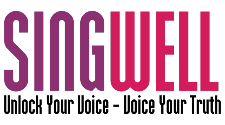
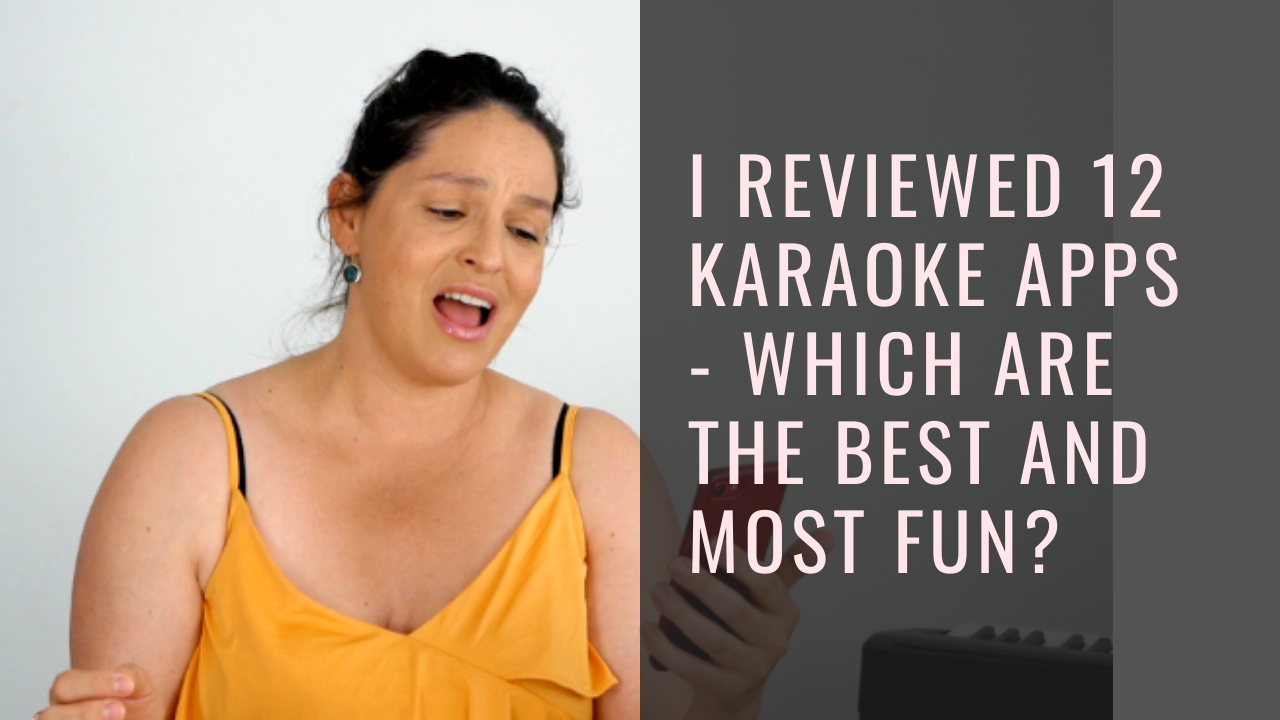
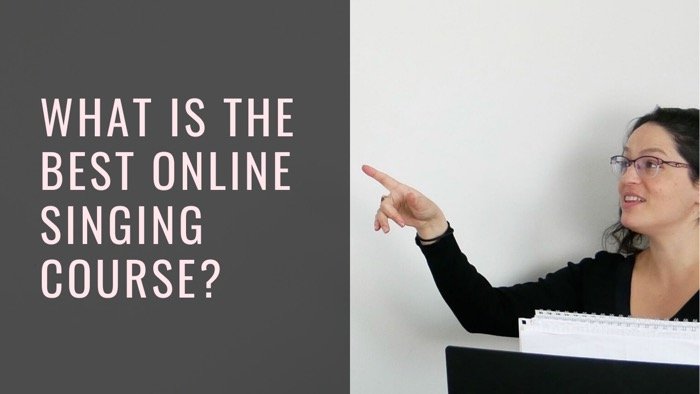
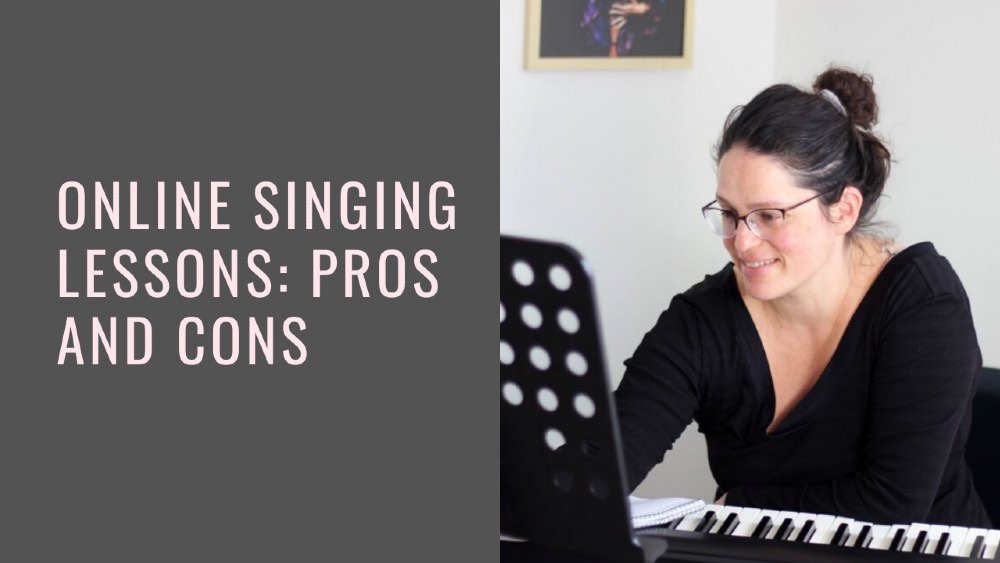
Here is one more that I’d love to get your thoughts on.
How do I sing
Help me please
How about Simply sing? I just downloaded it and thinking about buying it. It has a vocal range detector and seems like it has a real-time pitch monitor in the paid version. Can’t find any warmups tho. I need real time pitch monitoring because I can’t hear if I’m singing the right notes. So just videos won’t work.
Thanks. I will shortly review Simply Sing.
Ok
Good
I have a suspicion that many of these apps must be Apple device related. Reviews aren’t Android ones too often. The ones I did find I already had, but I did uninstall unrecommended ones though.
The apps mentioned cannot be found, if you offer singing lessons I can’t easily find them
I can’t find any of the apps you mentioned to use, if you offer singing lessons your page is too complicated to find a lesson
Hi Kenny, here’s my singing lessons page, hope that helps.